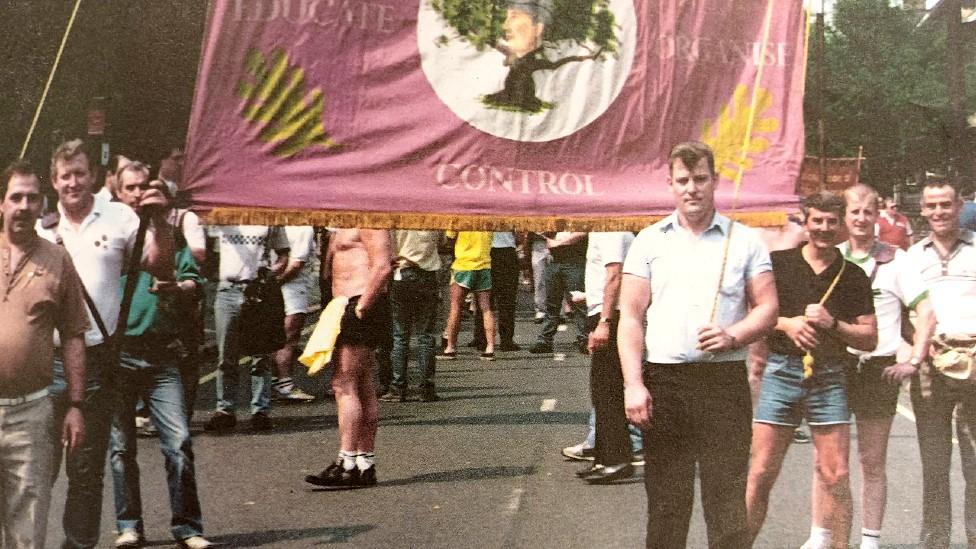How the miners’ strike changed the role of women
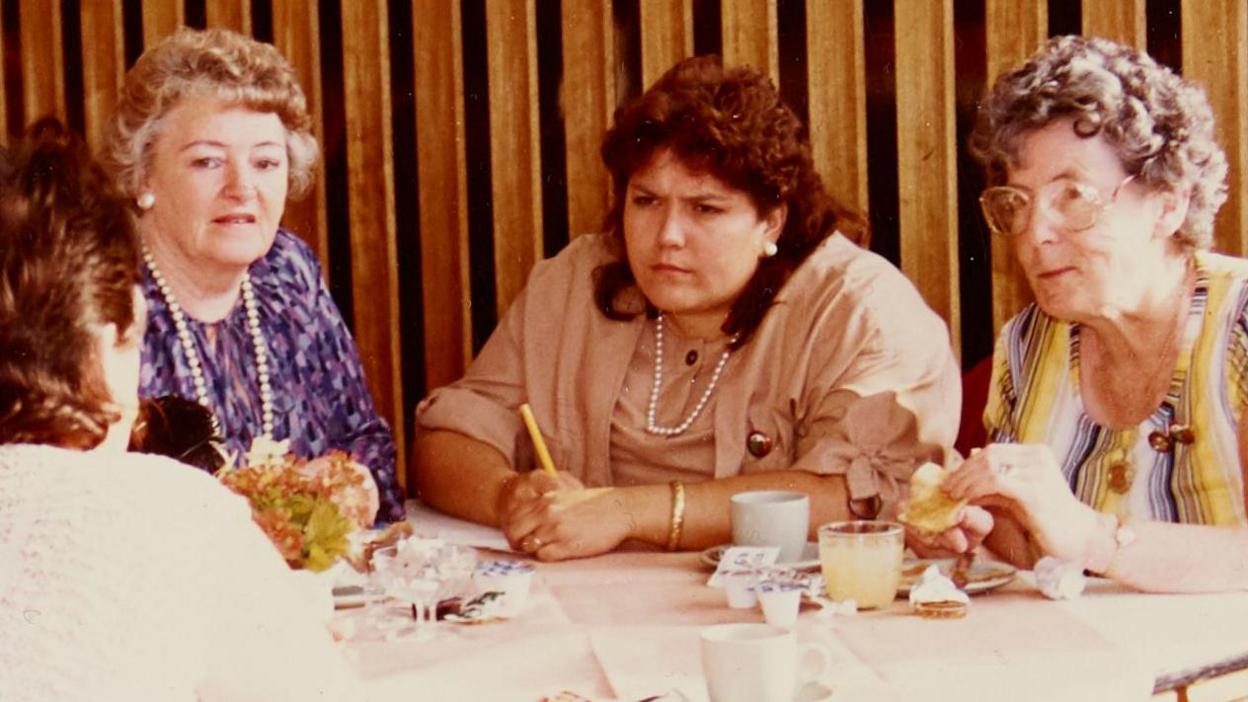
Sian James (centre) at a meeting of women in support of the miners' strike
- Published
It has been 40 years to the day since miners across the UK embarked on a year-long dispute in an attempt to keep their industry going.
No one knew quite how challenging that year would be. But for many women, the experience transformed their lives.
In the spring of 1984, Sian James was quite happy – married to a miner and the mother of two children.
Her husband worked at Abernant Colliery, near Pontardawe in the Swansea Valley, and her father, father-in-law and brother all worked underground too.
Then the miners strike began, a dispute which devastated communities across the UK.
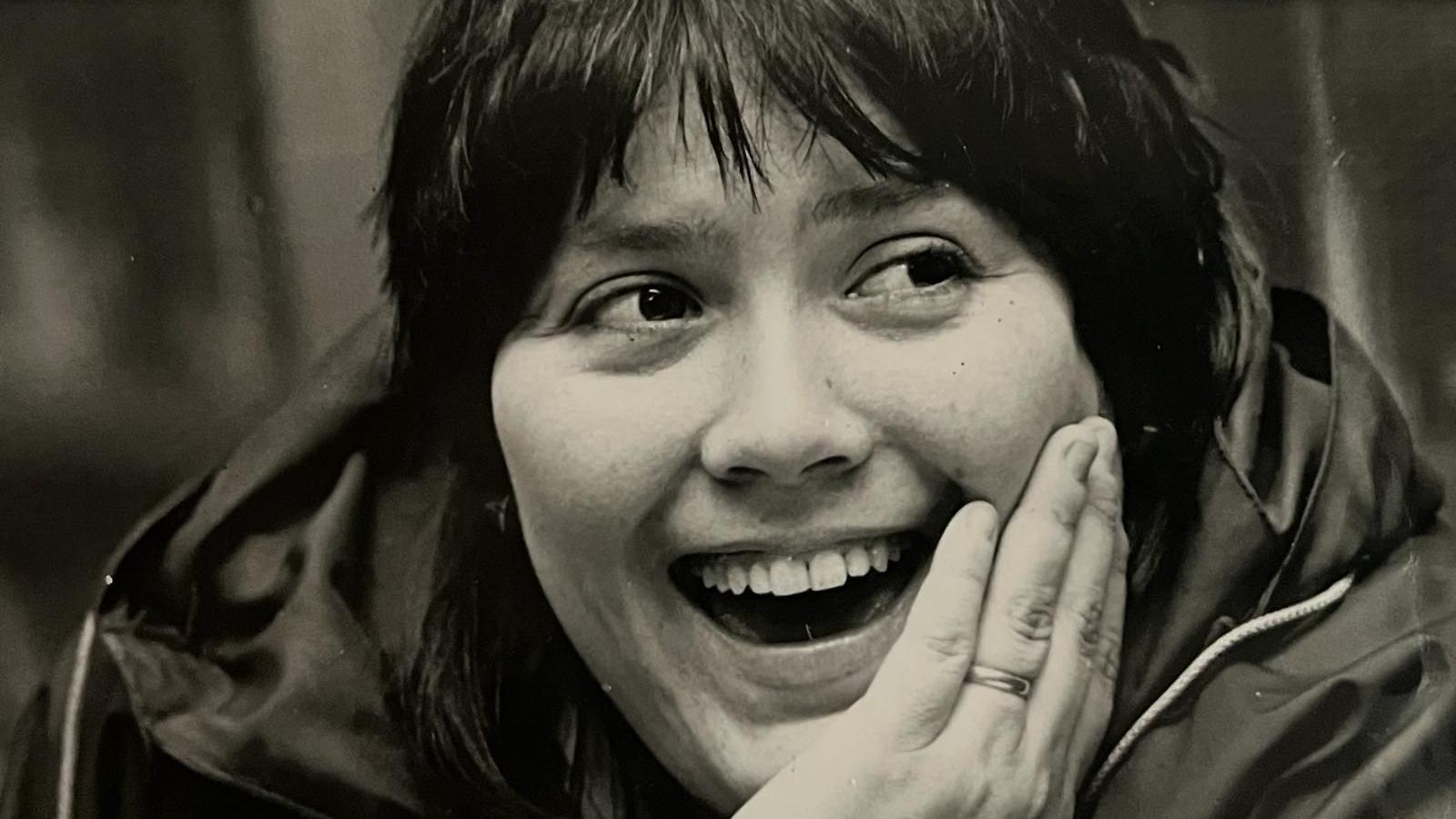
Sian James, who was portrayed in the 2014 film Pride, was one of many women who joined miners' strike support groups in south Wales
Women played a vital role in the dispute, by organising food collections, distributions and fundraising, organising pickets and speaking at rallies.
Sian, who was one of many women to join support groups in south Wales, said the women were “better organisers”.
“For the first time really, these men were sitting and listening to the women," she recalled.
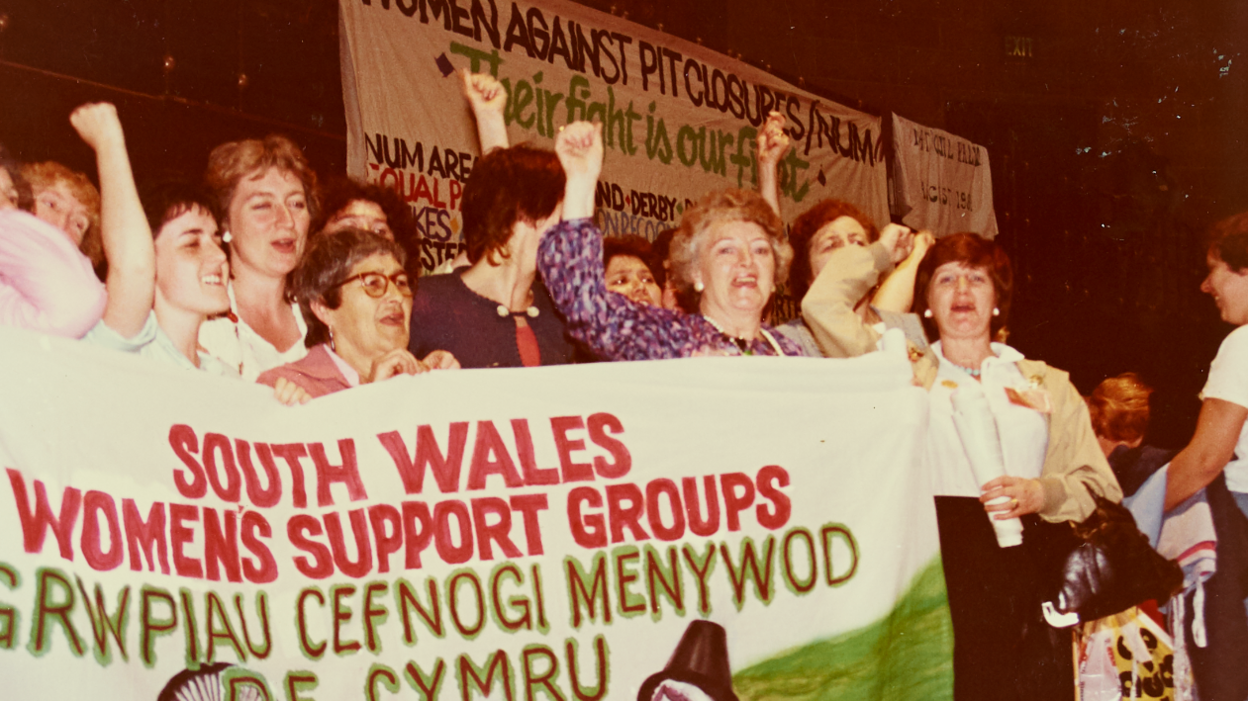
The women were “better organisers”, says Sian James
In November 1984, some men tried to return to work at Cynheidre Colliery near Llanelli.
Sian was among a group of women who tried to stop them, by getting into the site and barricading themselves in the manager's office.
"When the men arrived, we burst open the windows and started screaming. And you could see the sort of look of horror on everybody's faces,” Sian said.
To combat the boredom while they were waiting, they phoned the National Coal Board's hotline in London.
They got through to the personal assistant to the chairman, Sir Ian MacGregor, leaving an unrepeatable message.
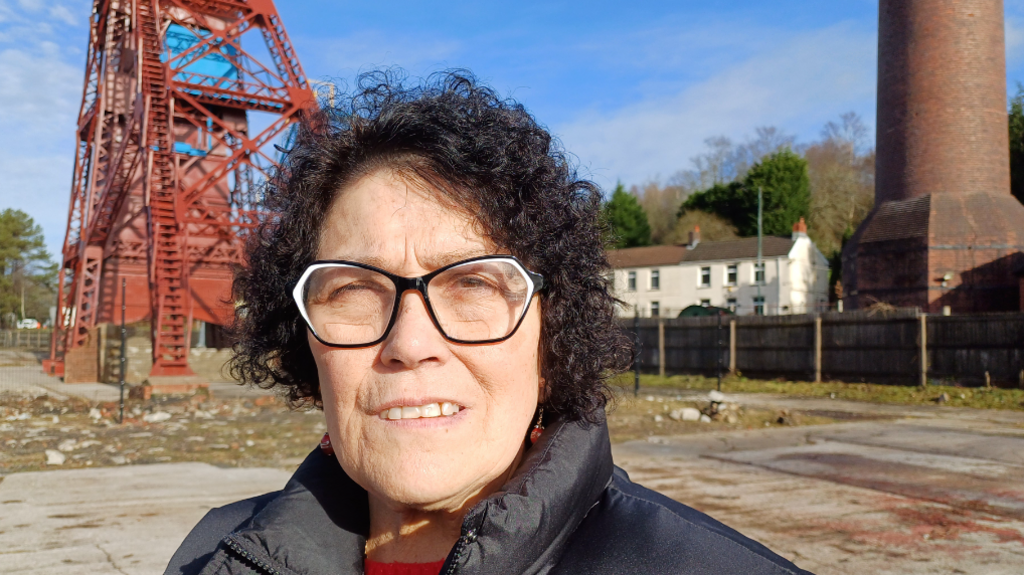
Sian James was MP for Swansea East from 2005 to 2015
After the strike ended in March 1985, Sian carried on going to meetings of the South Wales Women's Support Group.
But as the pits closed over the following few years, she had to find a new focus.
"There were opportunities,” she said.
Women involved in the strike had developed skills which were "transferable within their communities", she added.
Sian studied Welsh and History at Swansea University and went on to become the first female MP for Swansea East from 2005 to 2015.
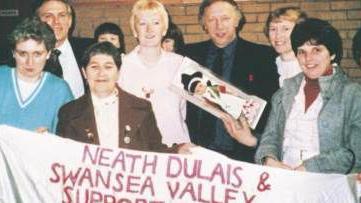
Michaela Hawkins, right, presenting a Welsh doll to NUM leader Arthur Scargill during the strike
Michaela Hawkins, from New Tredegar in the Rhymney Valley, was a housewife and mother in 1984.
At the time, women could not order their own drinks in some pubs.
But within a few months, Michaela was organising pickets and evading police surveillance.
She joined the Rhymney Valley Women’s Support Group as soon as the strike started, collecting money in buckets and helping with food banks.
“The women did feel empowered all of a sudden,” she said.
The groups helped to “educate the men as to how much they needed women”, she added.
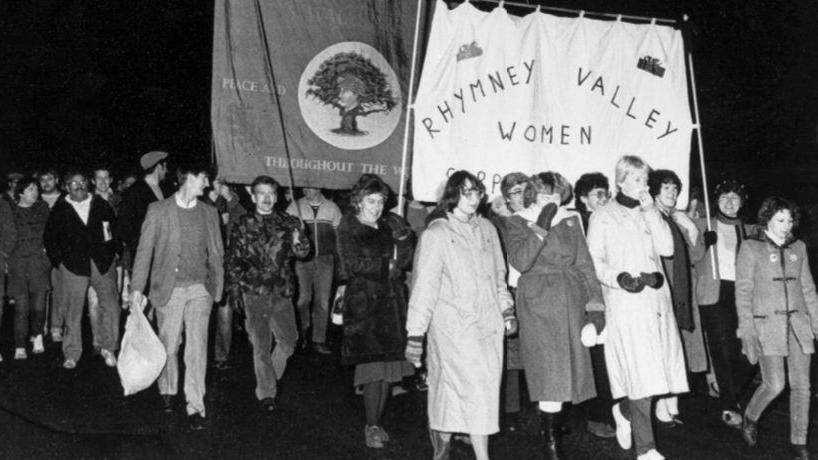
Rhymney Valley Women's Support Group taking part in a march
At Markham Colliery, in the Sirhowy Valley, Michaela was handcuffed to the railings by police and taken to Blackwood Police Station after trying to stop strike breakers.
“We would have our code and speak in our own language about what we were going to do, so the men wouldn’t connect to what we were saying,” she said.
She said they had fun along the way and learnt "to play the game, to our advantage”.
Michaela said the strike helped to change men's attitudes.
"Because where we stood by men during the strike, men stood by the women after the strike, which was vital."
‘I didn’t burn my bra but I am proud’
Ann Jones, from Hirwaun in the Cynon Valley, had never spoken in front of a crowd before the strike, but was soon giving speeches across Europe.
Her husband John worked at Tower Colliery, where miners had a reputation for militancy.
She knew the strike was coming and "wanted to do more" than giving out food.
Men were reluctant to get women involved at the beginning, but she was dragged on to a stage in Swansea where she proved just what she could do.
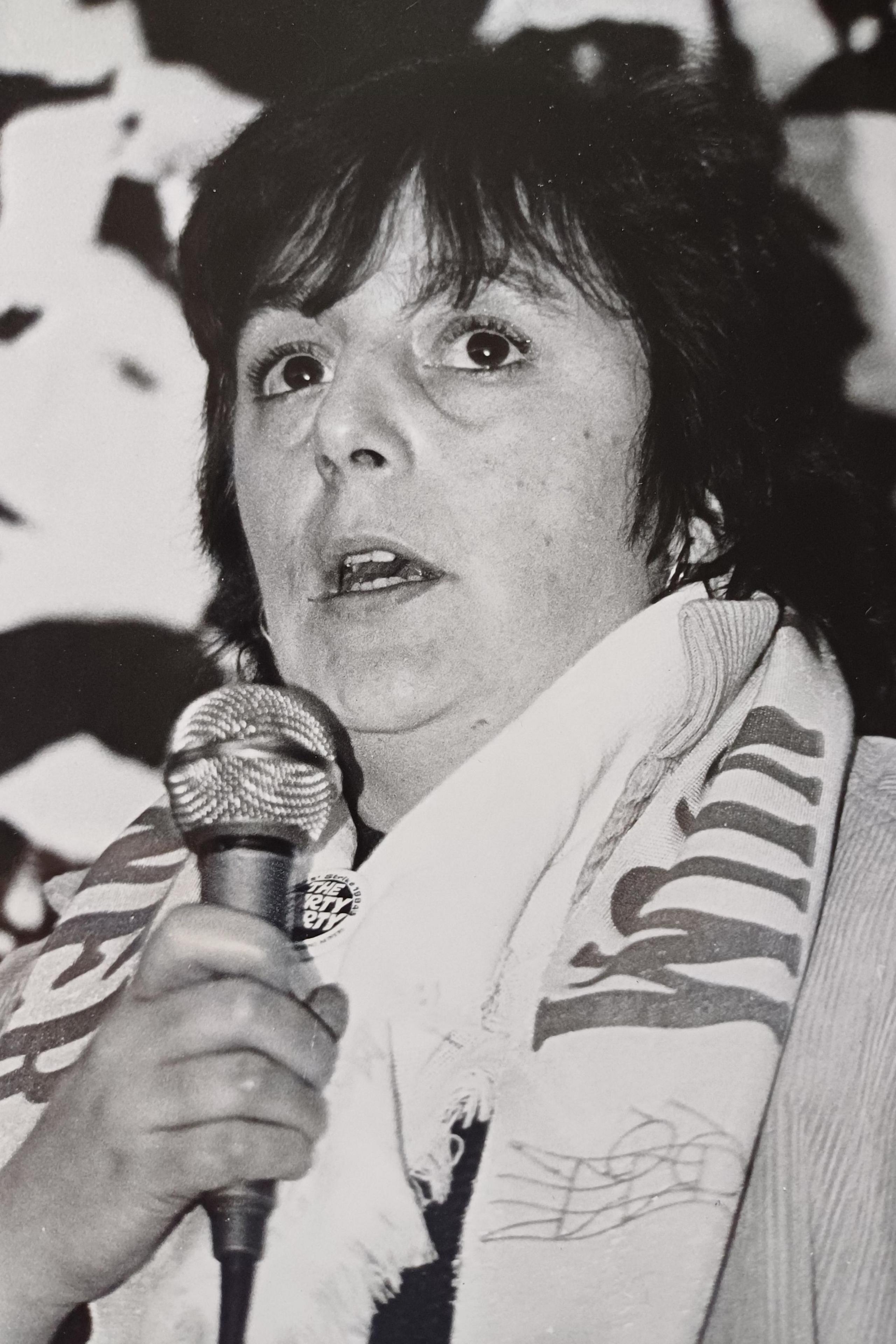
Ann Jones had never addressed a crowd before the dispute
Despite telling her husband she had spoken “a load of rubbish”, Ann made an impression and founded Women Against Pit Closures in Cardiff.
She travelled around Wales to spread the message and was involved in some of the strike's most notorious clashes between miners and police.
On one occasion, Ann was thrown over a fence.
“By that time, a lot of women were taking the place of men on the picket lines,” she said.
They were getting support from members of the peace movement from across the UK.
“These women knew how to sit down and not to be moved," she said.
“If it hadn't been for the women, the strike would not have lasted a year."
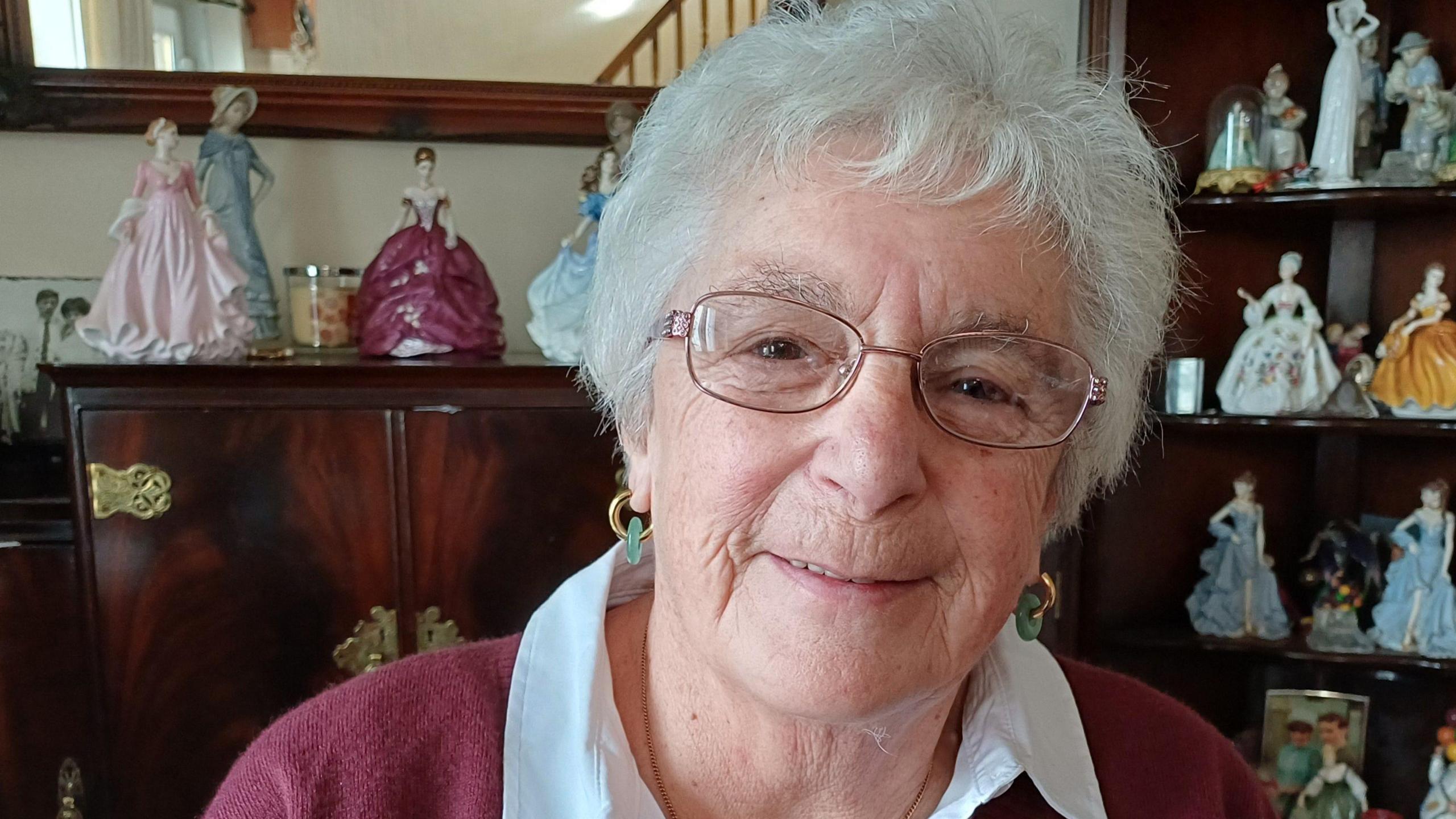
After the strike ended, Ann remained involved in local politics
As the strike went on, Ann was asked to travel to Europe to build support and raise funds.
She was on a stage in Sweden when she was told the strike was over.
“I think my heart dropped. I could do nothing but cry," she remembered.
Ann stayed in local politics and focused on her family.
“I didn’t go and burn my bra, I went back and darned the socks," she said.
She is proud of what she did 40 years ago.
“I took part in something that was one of the greatest things that has ever happened in this country and I don’t regret anything.”
Strike! The Women Who Fought Back will be on BBC One Wales and BBC iPlayer at 21:00 GMT on Tuesday 12 March.
Related topics
- Published18 February 2024

- Published2 March 2024
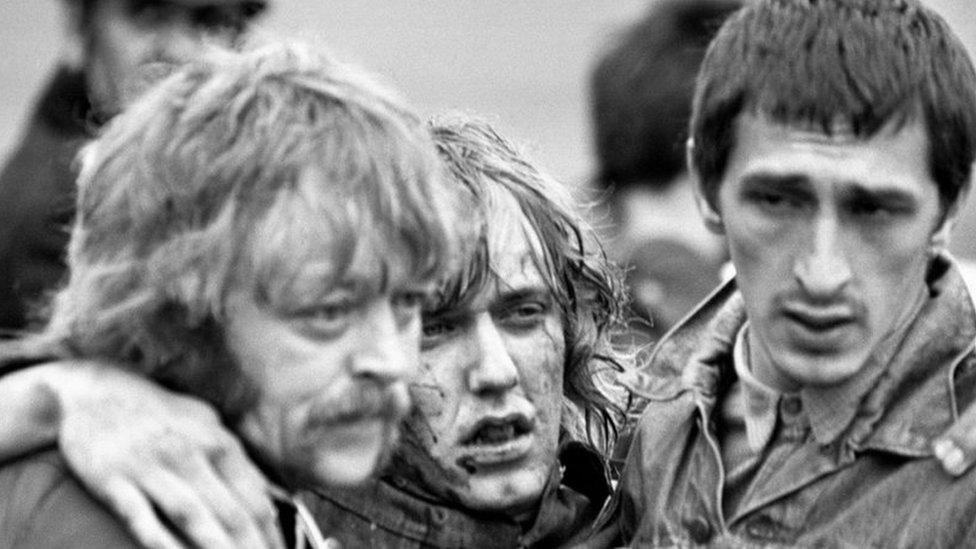
- Published4 March 2024
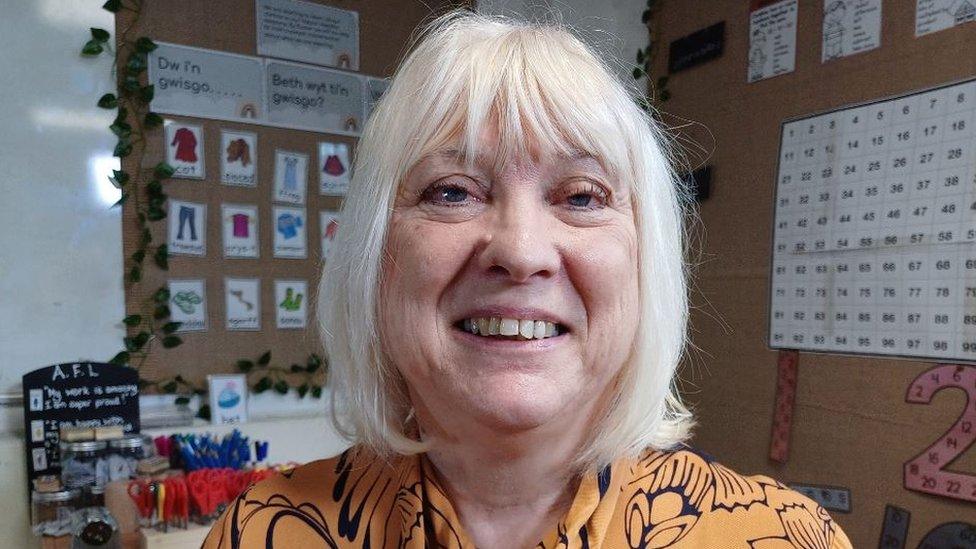
- Published25 February 2024
